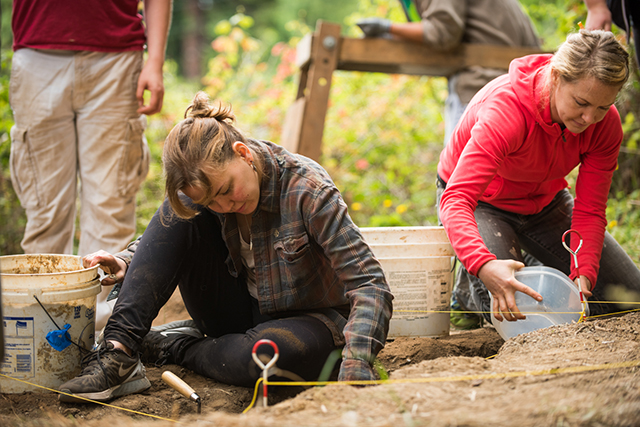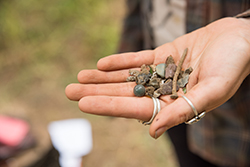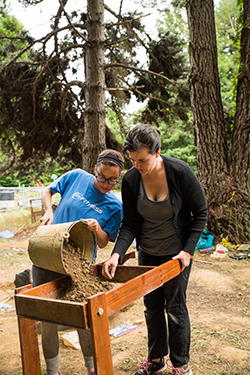
The hybrid program–a combination of a jam-packed summer institute followed by more malleable online classes–is in its second year and preparing to graduate its first cohort. Another group started on campus this summer, spending five weeks in the on-campus institute that launches the course.

During the session, students cover topics like interviewing subjects and conducting historical and archival research in the library, and they spend time working with the skeletal collection in the Biological Anthropology Lab. They also get down and dirty, gaining field experience while working at HSU’s simulated dig site.
That experience, plus other group projects, gives students plenty of opportunity to connect, avoiding one of the commonly noted challenges of distance learning courses. Students experience teamwork while getting the hands-on learning that can make a difference in the job market.
Mixing on-campus classes with online learning is gaining momentum in education, said Marissa Ramsier, program coordinator. And applied anthropology is an ideal subject to test the trend.
“Students are addressing real-world issues across multiple disciplines and career trajectories,” Ramsier said. “What they experience is applicable to the real world. It gets them ready to compete for a great job.”

“It’s really good model for other programs to look at,” she said. “Hybrid models have the reputation of being very literate, and our program is totally focused on job preparedness and careers.”
With the intensive portion of the class complete, graduate students return to their homes and lives, managing their time to include the online classwork. That strategy works especially well for non-traditional students who are striving to advance their education or pursuing a new career direction.
“It appeals to the nature of a student who chooses a program like this,” says Rosie Slentz, a teacher at Trinidad Elementary School who completed the summer session. “We have lives, we have children, we have jobs, we have other commitments. We need it to be somewhat flexible, and it is flexible.”
That concept has already proved appealing to students from around the world, including Paloma Cuello, who participated in the recent summer institute before returning to her home in the Canary Islands to work on the remaining coursework.
“One of the main reasons I chose the anthropology at HSU was because of the online opportunities,” Cuello said. “I’m able to conduct my research here in the islands. It’s helpful for me because I want to be here, getting things done while working on my master’s at the same time.”